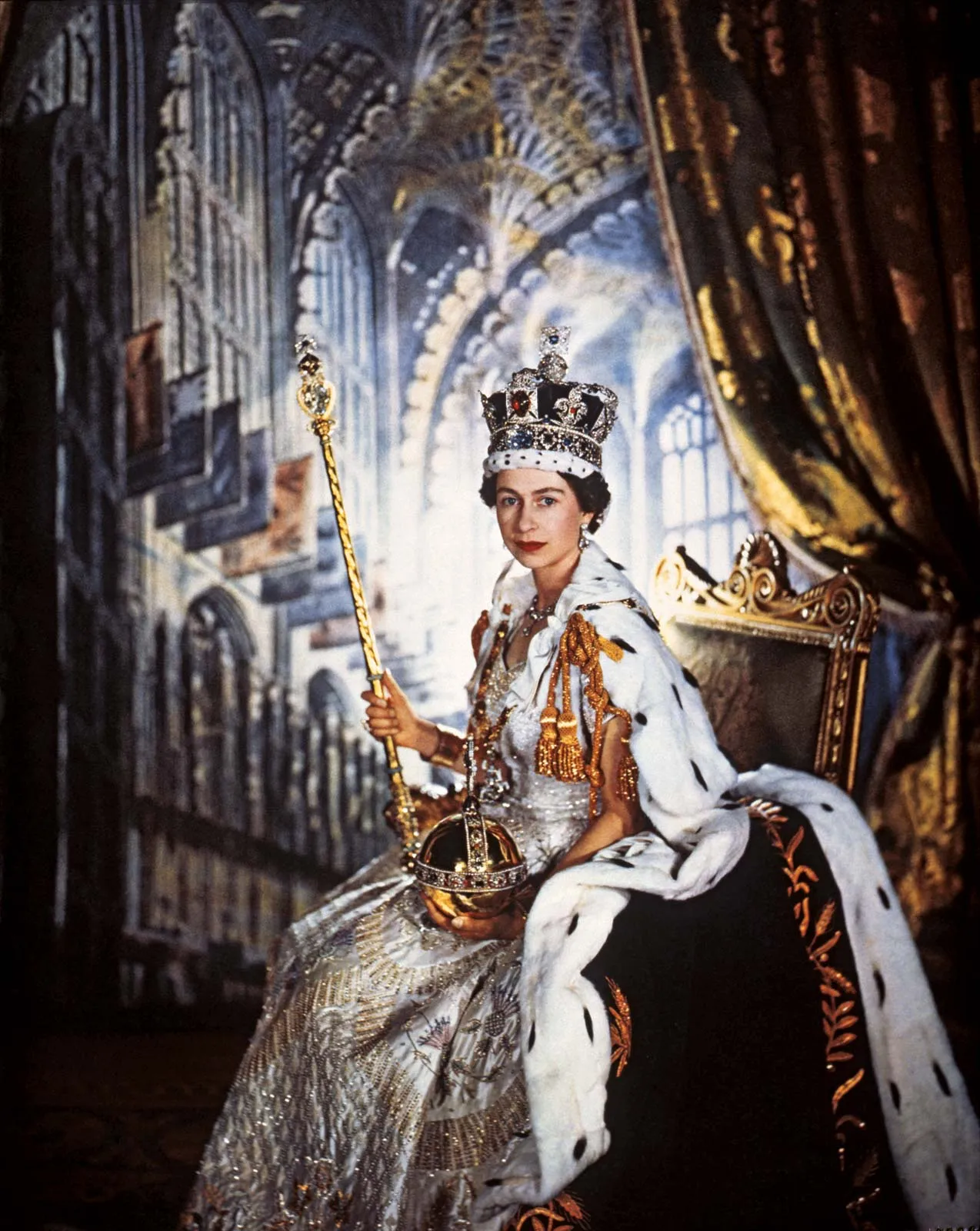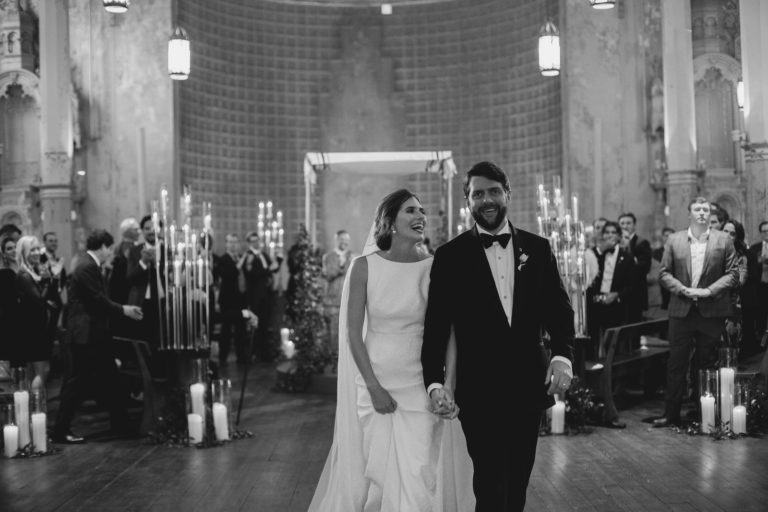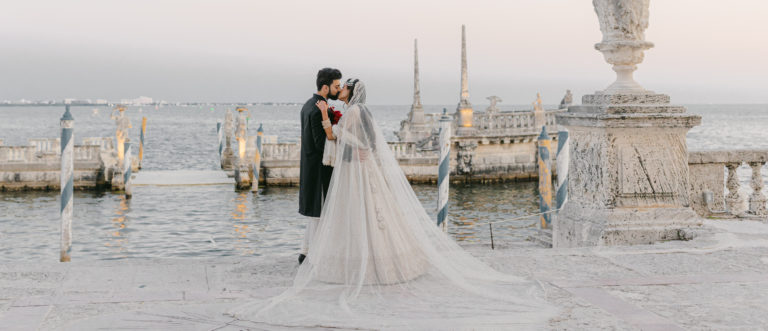
When Queen Elizabeth II died on Thursday at age 96, it felt like the monarchy as we knew it died along with her. Whether one is a royalist in possession of commemorative QE2 tea towels or not, the sovereign was synonymous with the institution itself: most people alive today can’t remember a time before her 70-year-reign, the longest in British history and the second-longest in the world, after France’s Louis XIV. Now it’s hard to imagine the monarchy without her.
The fact that “The Queen” and “the monarchy” are words tossed around without qualifiers—there are others, of course, but none as significant or visible as the British—is a credit to the peerless Elizabeth II. It’s akin to the way people call New York simply “The City.” The Queen was a candy-color-suited constant who wore vivid Easter egg shades to be maximally visible amid the crowds during her seven-decade rollercoaster ride of a reign. She famously said that she had to be seen to be believed.
Conventional wisdom has held that even those subjects (a word that has not aged well) who don’t love the monarchy itself, and certainly not the institution’s dark history of white supremacy and colonialism, maintained a basic level of respect for a woman who ascended to the throne at age 25 upon the sudden death of her father, King George, to become a rare female head of state in 1952. She went on to have weekly audiences at Buckingham Palace (or “BP”) with 15 prime ministers from Winston Churchill to Margaret Thatcher and Brexiteer Boris Johnson. A mere 48 hours before her death, the Queen, relying on a cane but smartly dressed in a tartan skirt and cardigan, met newly-elected PM Liz Truss at Balmoral Castle and formally invited her to form a government, as per British custom. She was a queen who upheld her responsibility to the last.
It was a sight I won’t see again in my lifetime. In the perfect words of one British acquaintance: “I can’t believe we have a male queen now.” Not to be too girlbossy about it (and the Queen was both jokingly and earnestly likened to a girlboss on Twitter after her death), she was, factually speaking, a woman in a man’s world, as Prince William put it in 2019. The immediate uses of “The King” and “King Charles” in official bulletins announcing the Queen’s death at her beloved Scottish summer retreat at Balmoral—a place where Thatcher reported that the monarch scrubbed her own dirty dishes—felt immediately jarring. After 70 years of queendom, the British monarchy is staring down a series of kings (barring any surprise, Sussex-esque defections in the future), from the newly-ascended Charles III to his heir Prince William and next-in-line Prince George. I wonder if any of them will ever plunge their hands into a sink full of dishes after a barbecue?
The Queen’s power was purely symbolic—soft power, as it’s called. She had no official say over political matters or the policies that trickled down into everyday life (although who knows what was said behind closed palace doors in the “room where it happens” during all of those PM chats). Still, her symbolism mattered to people—that vision of an almighty female ruler; an icon imprinted on the money; sang about in the national anthem; saluted as the head of the Armed Forces. A friend noted that she loved growing up watching the Queen’s reign, and lamented that her daughters are likely to know only kings. The Queen’s replacement with King Charles, who, at 72, is Britain’s eldest-ever monarch, feels like a dispiriting sign that—even after 70 years of a female head of state—patriarchy is our default setting.
Of course, Queen Elizabeth’s gender nor her longevity alone are enough to win hearts, minds, or respect. I believe that came from her evolving role as Great Britain’s chief brand ambassador and cheerleader. From then-16-year-old Princess Elizabeth’s first radio address in 1940 to the children of the Commonwealth from Windsor Castle (where she and her sister, Princess Margaret, sheltered during World War II) to a poignant speech during the peak of the COVID-19 pandemic, the Queen showed up, time and time again, and told people that everything would be okay. It’s deceptively simple, yet no small thing. She was never effusive or exceedingly fuzzy about it, and she failed spectacularly in consoling her people with her initially tepid response to Princess Diana’s death, but especially in her elder years, she showcased her grandmotherliness; her national matriarch status, with aplomb.
As an elder millennial American and a journalist for Vanity Fair and others, who, if I’m being honest, is most interested in covering the young royals, their “common” wives, and how they fit (or do not fit) into the Firm, I’ve struggled at times to grasp some Britons’ unwavering loyalty to the monarch. The presence of a queen—or a king—feels anachronistic to me in 2022. Like many Black British female thinkers and leaders I’ve interviewed, I question the monarchy’s checkered history and its place in modern society. Like most complicated, nuanced human beings, The Queen can’t be hailed as purely perfect or maligned as utterly unholy. I gained a better understanding of Britons’ affinity with that televised April 2020 address made by the Queen during some of the deadliest and most isolating days of lockdown. Maybe I was just in an incredibly delicate state, but I was so moved by her words: “We should take comfort that while we may have more still to endure, better days will return; we will be with our friends again; we will be with our families again; we will meet again.”
After the Queen’s death, crowds assembled outside Buckingham Palace instantly amended the British national anthem, solemnly singing “God Save the King.” It’s too soon for that title to come naturally to me. Still, I don’t doubt that King Charles will strive to do precisely what his mother did when she first ascended to the throne in 1952: make every effort to ensure the continuity of the monarchy. Then, as now, the new British figurehead inherited an embattled institution: in the Queen’s early reign, Britain was still smarting from World War II and its empire was diminishing, as British colonies gained independence (“in this,” the Guardian wrote in its obituary, Elizabeth II was largely “a spectator.”). In subsequent sweeping tours of the Commonwealth, the voluntary alliance of former territories and free nations who recognize the monarch, Queen Elizabeth engendered goodwill and secured the monarchy’s enduring place in the culture—and the Constitution.
King Charles now faces similar uncertainty. A new, younger generation of Brits does not stan the monarchy. Last year, Barbados cut ties from Queen Elizabeth, renouncing her as head of state to become a republic (the island nation remains a member of the Commonwealth). Prince William and Catherine—the newly-named Prince and Princess of Wales—were met with protesters earlier this year during their tour of Jamaica, Belize, and the Bahamas, demanding the royals acknowledge the British slave trade and its colonial roots.
The monarchy’s longtime stance on its dark past has been silence. I don’t think it’s a coincidence that a shift came this year. In June, during his opening speech at the Commonwealth Heads of Government Meeting in Kigali, Rwanda, then-Prince Charles stopped short of apologizing, but at least mentioned slavery. “I want to acknowledge that the roots of our contemporary association run deep into the most painful period of our history,” he said. “I cannot describe the depths of my personal sorrow at the suffering of so many, as I continue to deepen my own understanding of slavery’s enduring impact.” A few months earlier, in Jamaica, Prince William made similar comments. “I want to express my profound sorrow,” he said. “Slavery was abhorrent, and it should never have happened.”
Meaningfully, Prince Charles also signaled a monarchical messaging shift in his remarks in Kigali, telling Commonwealth leaders that they collectively need to “find new ways to acknowledge our past. Quite simply, this is a conversation whose time has come.” Conversations, he added “start with listening.” In the ceremony in which Barbadians ousted the Queen as head of state, Prince Charles joined Rihanna in looking on and congratulating them.
“Whatever your background or beliefs may be, I shall endeavor to serve you with loyalty, respect, and love,” King Charles said in his inaugural address on Friday. The only constant for the monarchy, the new King must know, is change.












